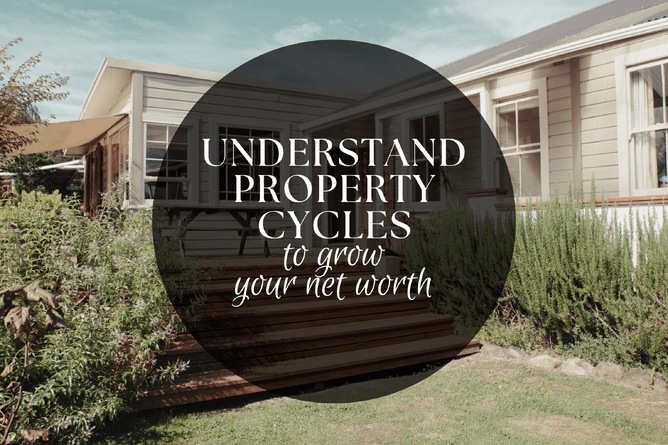Property markets go through natural cycles which historically last approximately 7 - 10 years each. During each cycle, prices don't rise in a linear fashion. Rather, they increase at a fast rate during the boom (2-3 years), which is usually followed by a correction (6-12 months) and then a plateau period (3-4 years).
Typical Property Market Cycle:
Boom (2-3 years) -> Correction (6-12 months) -> Plateau (3-4 years)
Please note: These time periods are indicative only and past performance is no guarantee of future success.
During the boom period, often referred to as a 'seller's market', prices are moving quickly, interest rates are low, multiple-offer situations are common and there is a shortage of good properties available for sale.
Moving into the correction phase, interest rates are high, buyer interest drops off and prices can fall, recovering some (but rarely all) of the gains made during the boom.
Eventually, the dust settles and we see a plateau period where values stabilise but houses are still reasonably hard to sell with supply outweighing demand.
At some point, the market starts booming again. This often coincides with falling interest rates, increased migration and a decrease in new build activity.
Where are we now?
During the peak Covid years we saw a massive increase in property values as many people had disposable income they couldn't spend, and time on their hands since they couldn't travel. Much of their energy went into buying property, with demand and market hype (FOMO) fueling even more buyer interest resulting in record value growth.
This was inevitably followed by a sharp correction once interest rates started going up and banks tightened up their lending criteria. Since then we've seen a plateau period with increased supply as developers bring large townhouse projects to market and sellers who missed the boat and held on during the correction try to capitalise on the slight market improvement and sell up.
So is now a good time to buy?
The thing about property markets is no one really knows what's going to happen next. However, understanding cycles can give us an inclination as to what the future likely holds at some point.
Key signs that may point to an upcoming boom phase are reduced interest rates (which we are starting to see), banks loosening up their lending criteria, and a reduction in the number of properties on the market.
Maybe I'll just wait
One key aspect of this process to understand is that when property markets move, they move fast. Once the boom period starts, open homes can go from 2 or 3 visitors to 20 or 30. Instead of properties attracting 1 offer, they'll get 4 or 5. Once the boom really gets going, you might see 10 - 20 offers on a single property. At this point, the buyer advantage has gone, and while prices won't move up instantly, it can be hard to secure a property under these conditions since everyone is trying to join the party at the same time.
What would Buffett do?
It takes real courage to buy during a plateau, when signs of the boom are just starting to appear, but the advantages are many:
Have your choice of many wonderful properties
Potential opportunity to negotiate 1-on-1 with sellers
Time for thorough due diligence
No rushed decisions
Another way to look at it: Based on what we have seen throughout previous market cycles, there is a reasonable chance that property prices will never be as cheap as they are right now.
Final thought
If you intend to make money through owning property, try to make sure you can afford to hold it for at least one boom period. Because no one knows exactly when each boom is going to come, that usually means you need to own any property for at least one complete property cycle to see a major return on your investment.
Are you thinking of making a real estate move? Get in touch today to talk about your requirements. I'm here to help.

